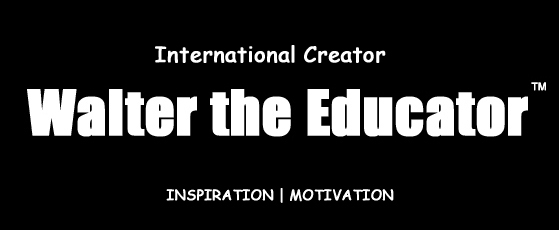
Walter the Educator's BLOG
Is College Worth It?
| 1 min read© WaltertheEducator.com. All rights reserved.
Share this link – When we educate, we create a better world! Pass it On!
In today's dynamic landscape, the perennial query persists: Is College truly worth the investment of time, resources, and effort? This inquiry stands as a testament to the shifting paradigms surrounding higher education and its perceived value in contemporary society. Advocates champion the transformative power of higher education, extolling its virtues as a gateway to personal growth, intellectual enlightenment, and enhanced career prospects. Along with myself, many believe the college experience embodies a crucible wherein individuals forge lifelong friendships, explore diverse perspectives, and cultivate critical thinking skills essential for navigating an increasingly complex world.
Empirical data often corroborates the assertion that college graduates, on average, command higher salaries and enjoy lower unemployment rates compared to their non-degree-holding counterparts. This statistical evidence underscores the economic advantages conferred by having a college education, with degree holders typically reaping the dividends of their academic pursuits in the form of enhanced earning potential over the course of their careers. Detractors contend that the exorbitant costs associated with attending college, coupled with the burden of student loan debt, can outweigh the purported benefits for some individuals. In an era characterized by skyrocketing tuition fees and mounting student loan obligations, the financial calculus of pursuing higher education becomes an increasingly salient consideration for prospective students and their families.
Traditional college learning is under assault since there are many different pathways to learning in the new digital era. Acquiring knowledge about a variety of topics is available to the interested person by a simple click of a button. Technology and learning digitally have transformed the learning landscape, which comes with considerably less investment than going the traditional college route. The debate surrounding the value of college extends beyond mere economic metrics to encompass broader notions of personal fulfillment, societal progress, and the cultivation of an informed citizenry. Indeed, the intangible benefits of a liberal arts education—such as fostering empathy, fostering creativity, and nurturing a lifelong love of learning—resonate deeply with proponents of higher education as a public good.
Outro, the question of whether college is worth it remains a deeply subjective inquiry, contingent upon myriad factors including individual aspirations, financial circumstances, and prevailing societal norms. While college undoubtedly holds immense potential to enrich one's life and expand horizons, it behooves each prospective student to weigh the costs and benefits judiciously before embarking on this transformative journey toward self-discovery and enlightenment. Ultimately, the value of a college education transcends mere dollars and cents, encapsulating the essence of human potential and the pursuit of knowledge for the betterment of oneself and society.

